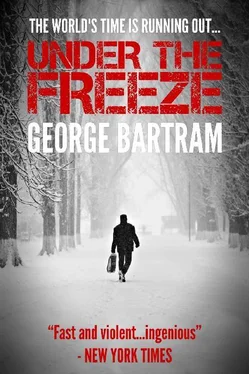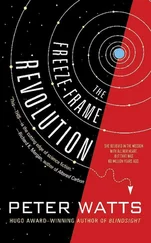“Are you going to throw me out of the country?”
“Dear me, no. Not if you behave yourself.” Matthiessen was enjoying himself. “But I want to be very clear when I say that you will receive no help here. Was I very clear?”
“Why don’t you explain.”
“Oh, very well. No weapons, no identity papers, no information, no shoulder to weep upon. You will be kept always under surveillance. You will be made uncomfortable. You will be encouraged to take your enterprises elsewhere. You will not be allowed, for example, to travel about using a forged passport.”
“Is that what I’m doing?”
“Let me see your passport.” He held out a hand.
“Why don’t you try to take it?”
“Oh, shame. Oh, the bully-boy! Really, Tarp, that’s too vulgar, even from you.” Matthiessen was delighted with himself. He bit his lower lip and his eyes flicked happily over Tarp’s face. “Have I made myself clear, then?”
“I think so. It seems fair enough.”
“Oh. You disappointed me. I’d so hoped you’d want to bargain, so that I could say no. Alas.” He flashed his teeth. “Another time, perhaps.”
There was a noise behind Tarp; the door opened and the cacophony of the house swelled in. “Aha!” Matthiessen cried in a different voice. “Her Majesty’s messenger riding comes. What news of the Rialto, Carrington?”
“Ami interrupting, sir?”
“Not at all, not-at-all, my boy!” Matthiessen clapped Tarp on the shoulder. “We just had our little chat. Mr. Tarp has an excellent grasp of the situation now — am I right, sir?”
“I believe so.”
“There, you see. How perfectly splendid. Well, this was a pleasant meeting! Carrington, I leave our guest in the capable hands of youth; I’m off to dinner with some perfectly dreadful people from the Exchequer. Love to stay and jabber, but I daren’t.” He smiled at Tarp. “Do try the Dover sole if you dine here; they don’t do much well here, but the Dover sole is not inedible.” With that, he saw, or pretended to see, somebody he knew outside the open door. “Aha, Jepney, there you are! Hold on, Jepney!”
Johnnie Carrington looked shamefacedly at Tarp. “I’m sorry.”
“Don’t apologize. I can’t think of anybody I’d rather have order me out of the country.”
“He’s under a strain. His wife’s been ill.”
“That must be convenient for him. He enjoys being a bastard so much.”
Carrington blushed. “I am sorry. I can’t help you with any of the things you asked about last night.” He spread his hands, then plunged them into his coat pockets. “Orders.”
“It’s all right. It’s perfectly all right.”
But it wasn’t all right at all.
They stood just inside the door of Prong’s, making that meaningless final chatter that ends a stiff evening. Johnnie Carrington was still embarrassed and probably angry about Matthiessen; Tarp had shrugged it off and was thinking how best to cut his losses.
“Am I to be followed?” he said.
Carrington grimaced. “That’s a bit low, isn’t it?”
“Am I?”
“Yes.”
“How many?”
“Really, I can’t—”
“I’ve been attracting violence, Johnnie. I don’t want to lead your people into a mess that’s not of their making.”
“Whyever should you do that?”
“I’ve been thinking that if somebody wanted to set me up, what a good way this would be to do it.” He decided to be honest with Carrington, although he was suddenly wary of him because of the meeting with Matthiessen. “I was in a mess in Paris this morning. Very bad.”
Carrington looked grim. “Let me get you some protection.”
“Not necessary.”
Carrington stiffened. “I’m sorry, but it is. While you’re on British soil, you’re our responsibility — both to neutralize and to protect. Give me three minutes.”
Tarp did not wait the three minutes but strode up the short street and turned into the thoroughfare. It was about forty-five minutes before he was to meet Mrs. Bentham. He headed northeast, rather away from the Shaftesbury Avenue theaters, into streets that were at first packed with people and then, after he crossed Oxford Street, much quieter and darker. A car passed him, going slowly; he saw a man and a woman and wondered if they were part of the protection that Johnnie had laid on.
He had not seen his trackers yet. He would have to lose them before heading back toward the theater. He came to a passage that was lined with shops and whose ends had been closed to cars with concrete posts. He turned into it. It was a city block long; the shops were all locked now, the only lights those high up on the buildings. He walked slowly, his long strides easy, his footsteps falling dully on the concrete. A third of the way along, he stepped into the deep shadow under an overhang. The night sounds of nearby streets came clearly.
He moved into a shop doorway. In the angled window next to him, he could see the reflection of that part of the passage he had just walked; through the window and the front window of the shop, he could see the passage’s other end. As he looked, two figures turned into the passage behind him. Seconds later a car pulled across the other end. It was not the car he had seen before.
He turned up the collar of his jacket and folded it across his white shirtfront. He took the cigarette lighter from his pocket. The situation was rather like the attack in Buenos Aires, and he was reminded of the empty gun he had carried then. He had fired one round from the .22 that morning: had Laforet’s people removed the other? Very deliberately, he pulled up the end of the lighter so that it made no noise. One copper-colored casing showed in the dim light from overhead.
One is better than nothing , although with this thing , it’s not much better .
Now there was some question as to whether the two men in the passage were Carrington’s “protection” or something more dangerous.
The two came up the passage slowly, walking about ten feet apart. The one closer to Tarp was a half step ahead. They both looked like quite ordinary men, upon whose cheap overcoats and tired faces the light fell cruelly. Tarp noticed a plastered-down lock of hair, a pug nose, a habit in the lead man — perhaps born of tension — of carrying his head very high, as if he were constantly looking overhead.
Tarp wondered if they would use guns. Guns were still somewhat a rarity in London, and it was not like Moscow to shoot people down here as if it were Chicago in the twenties. On the other hand, if they had hired local talent — Irish or splinter Maoists — anything might happen.
In Buenos Aires , they wanted me alive . Maybe here , too . He thought of what Laforet had said. Twelve men , not one . Maybe there would be a difference in style, then.
He moved to his right and pressed hard against the wall. There was no window on that side. The wall was cut stone, with a deep crevice every fourteen inches and a rounded nosing at the corner. He pressed the bottom of his right fist into a crevice and pushed it forward against the rounded corner. Even braced that way, the little gun would be laughable.
Tarp listened to their slow footsteps.
Staying alive is knowing when to shoot first .
At the far end of the passage, the doors of the car were open as if to receive anything that was driven up that way.
Tarp braced himself to shoot. Three steps , he told himself.
“Excuse me!” The voice was rather high and very polite in the tone that well-bred Englishmen use when they are giving a definite command but are not yet angry. “Excuse me, please — you men there.” Tarp recognized it as Johnnie Carrington’s voice.
Читать дальше












